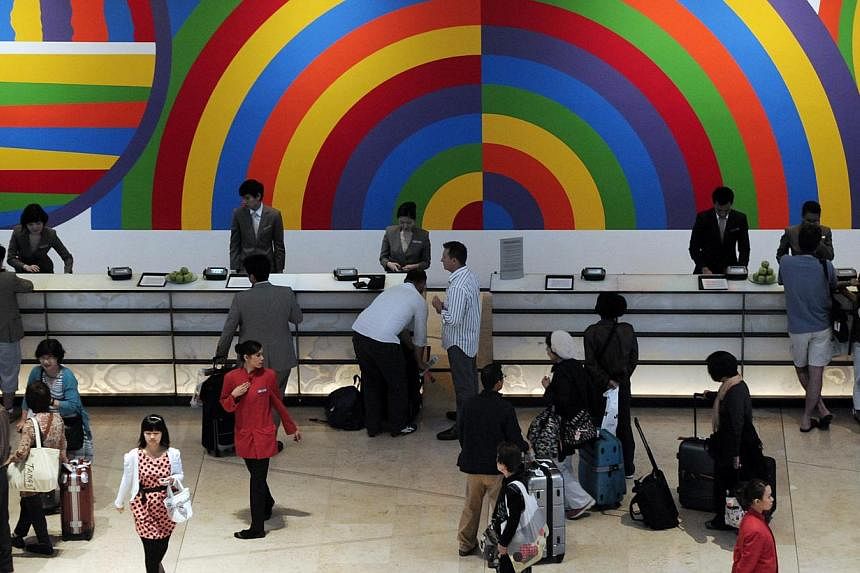SINGAPORE - There are still vacancies in the accommodation and food services industries, a key reason for which is the tightening of measures for foreign labour, said Minister of State (Trade and Industry) Teo Ser Luck on Wednesday.
Yet, despite this, industry numbers are healthy, as occupancy rates and room pricing show, he added.
Productivity rates for these sectors have also improved.
The job vacancy rate for accommodation and food services rose to 6.0 per cent in the second quarter of 2014, compared to 4.4 per cent a year ago.
Mr Teo, who was responding to a question in Parliament from Nominated MP Randolph Tan, said he expects the sectors "to continue to face labour constraints as they restructure," especially as foreign labour tightening measures take effect.
However, hotels continued to maintain a steady average occupancy rate - 86 per cent - and revenue available per room - $219 - from January to July 2014. The hotel occupancy rates during the recent F1 Singapore Grand Prix were also comparable to last year's race, he said.
There has also been good news in terms of real productivity for the accommodation and food services sectors, said Mr Teo: it grew by 0.9 per cent per year between 2010 and 2013.
Labour productivity for the accommodation sector also picked up with the opening of new tourism offerings since 2010, improving 2.8 per cent per year between 2010 to 2013, compared to 0.6 per cent per year from 2004 to 2009. Likewise, the labour productivity for the food services sector improved to -0.6 per cent per year from 2010 to 2013, against a historical rate of -3.4 per cent per year from 2004 to 2009.
Mr Teo also shared examples of companies with good productivity initiatives with the House, such as Gloria Food's installation of a digital ordering and payment kiosk in its Baja Fresh Mexican Grill outlet. This cuts the average waiting time by three to five minutes and reduces wrong orders and minimises mismanagement of cash.
He added that the Government will continue to closely monitor how businesses are adjusting to the tight labour market conditions.


